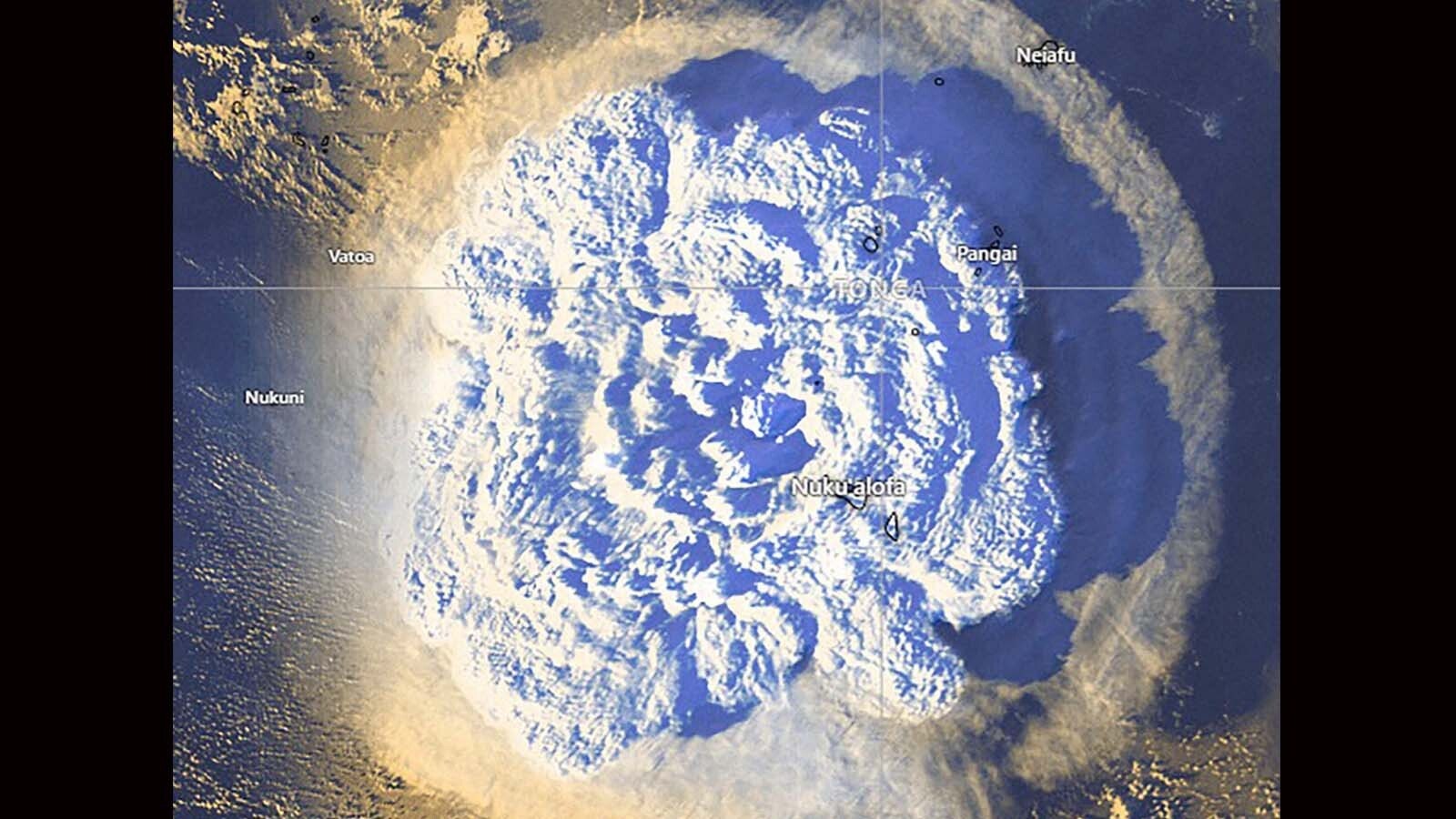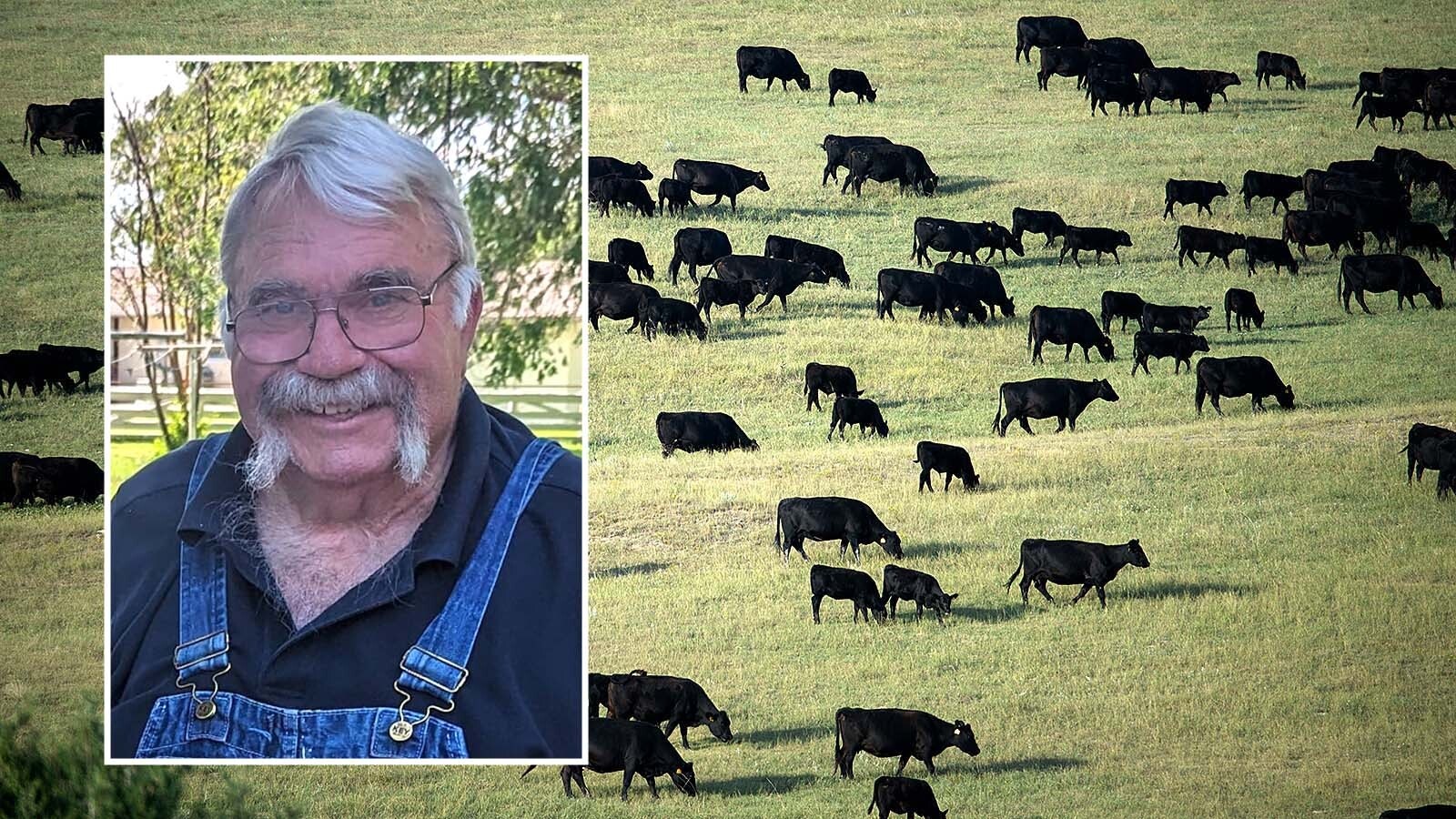Wyoming over the weekend felt the shockwaves from a volcanic eruption half a world away.
However, only time will tell if the ash and gases released by the eruption 6,200 miles away from Wyoming will affect the state’s climate, according to meteorologist Don Day.
On Saturday, the Hunga Tonga-Hunga Ha’apai volcano near Tonga erupted in what may be the largest volcanic eruption seen in the last 30 years, according to CNN.
This eruption caused tsunamis on Tonga’s largest island and caused shockwaves that would ultimately go around the world. No information has been released yet on deaths due to the volcano, but two deaths in Peru were blamed on resulting tsunamis.
The eruption caused a change in the air pressure could be felt in Jackson and western Wyoming around 5:30 a.m. Saturday. The rest of the state had a pressure change within the next 45 minutes, Day said.
“This eruption is just amazing,” Day said. “If you were on Mars, you could have seen it, that’s how big the eruption was. But as for the shockwave here, unless you knew a volcano went off and were a total geek, looking at the air pressure, you would have never known it happened.”
Day said that he is regularly asked if a volcanic eruption can affect the weather and climate.
His response?
“Absolutely.”
However, he said that certain developments need to occur during an eruption for it to affect the weather, such as volcanic ash and other released gases needing to hit the stratosphere, the second layer of atmosphere. He also said when and where the volcano erupts play a part in the weather effects.
Day pointed to the eruption of Mount Pinatubo in the Philippines in 1991, which ejected 20 million metric tons of sulfur dioxide and caused global temperatures to drop 0.5 degrees between 1991 and 1993.
Because the weather-related effects of a volcanic eruption cannot be seen immediately, Day said it is hard to predict how the Tonga volcano will affect the weather in Wyoming.
“This is probably not going to change our weather tomorrow or within the next week,” he said. “But I think the best thing to do is monitor the situation.”





